Hud (1963)
“The shape of the country changes depending on the men we believe in.”
|
Synopsis: |
|
Genres, Themes, Actors, and Directors:
Review: Ouch. Thank goodness for De Wilde’s Lonnie, who represents a better hope for the future. Meanwhile, as we see Douglas grappling with life-altering news about his cattle — it’s nothing short of eerie seeing a “highly communicable viral disease” at the heart of a storyline right now — we can’t help wondering how in the world he developed such intense loathing for his own son. (Apparently Hud was changed from stepson to son when Larry McMurtry’s novel Horseman, Pass By was adapted, and Homer’s wife was removed from story — both of which could help fill in gaps about their relationship.) Regardless, this is a film about alienation in all its forms — and both director Martin Ritt and DP James Wong Howe portray this sensibility magnificently. The actors are top-notch in their roles, perhaps thanks in large part to Ritt’s theatrically-grounded rehearsal process. It’s harsh knowing Newman was so in character that upon hearing about the recent death of Neal’s seven-year-old daughter, he simply said “Tough”, and walked away. I suppose kudos should be given to the storytellers for daring to show us the reality of such deep-seated self-absorption and disdain for humanity — though viewers should be forewarned that this is an enormously bleak tale on nearly every level; the final cattle scenes are especially brutal to watch. Redeeming Qualities and Moments:
Must See? Categories
(Listed in 1001 Movies You Must See Before You Die) Links: |
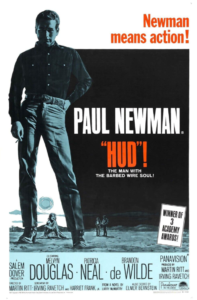
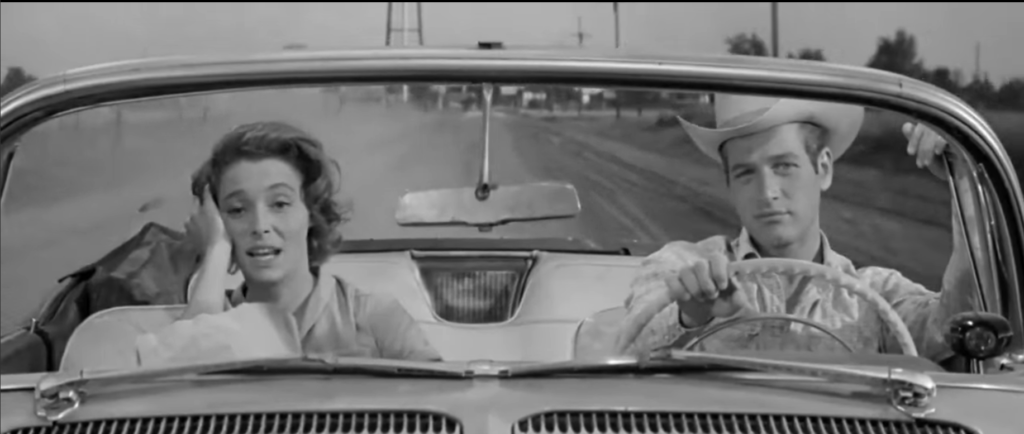
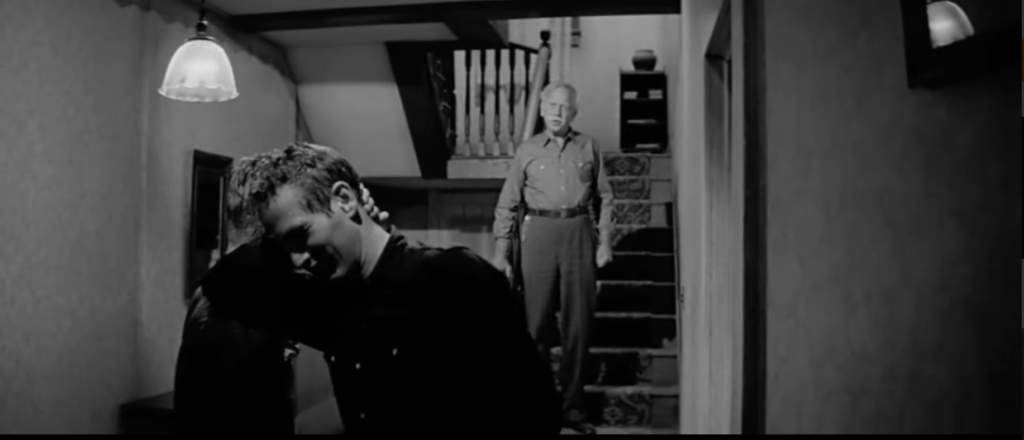
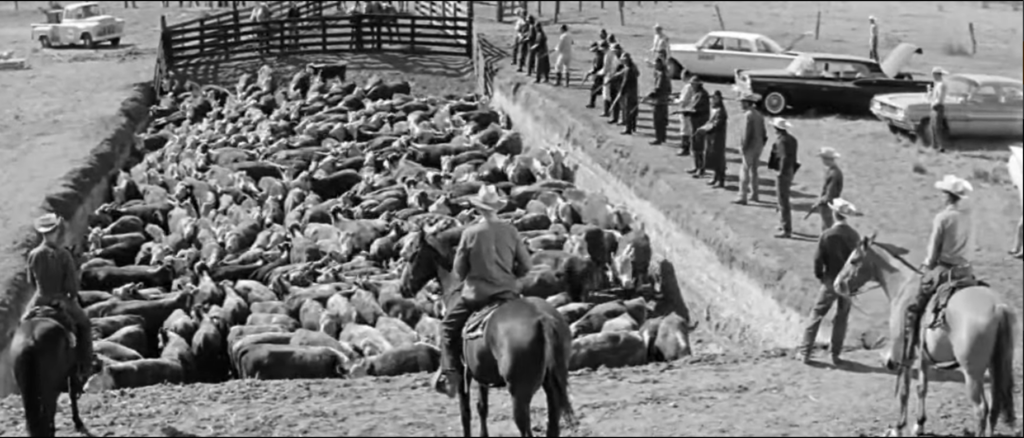
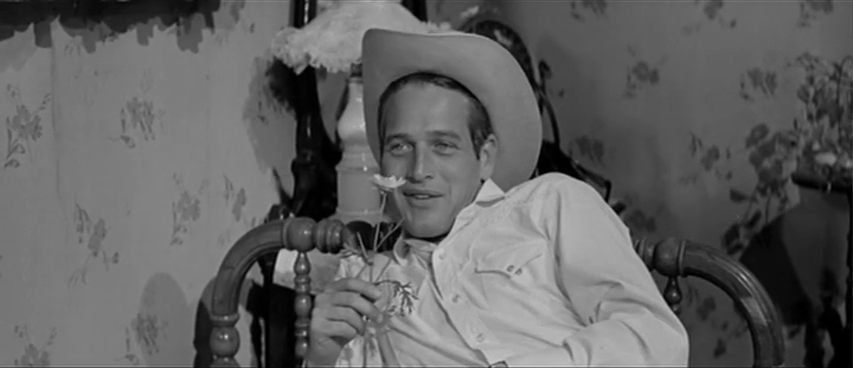
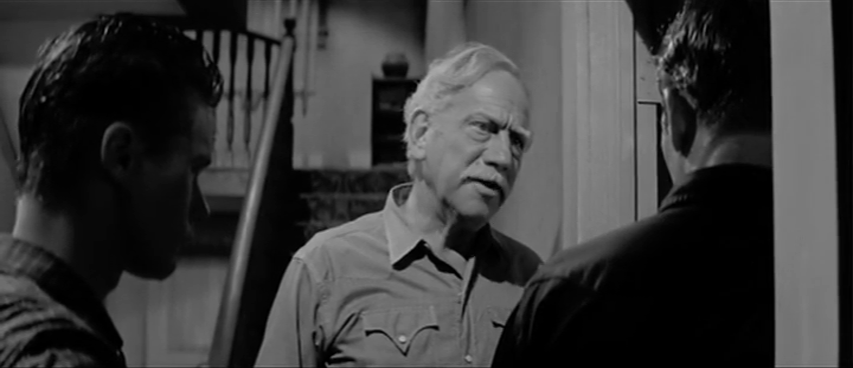
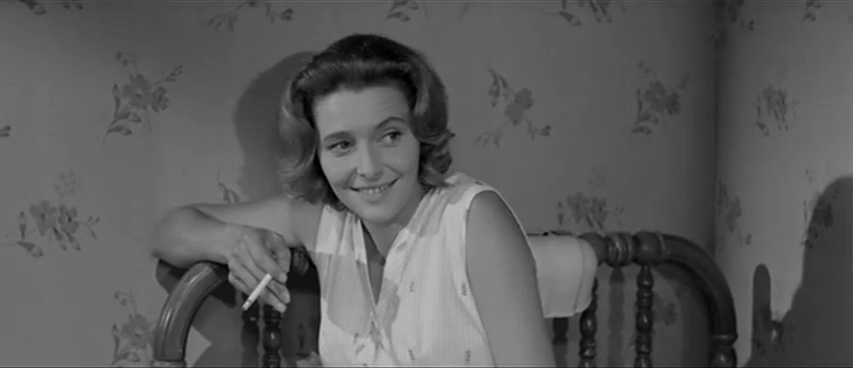
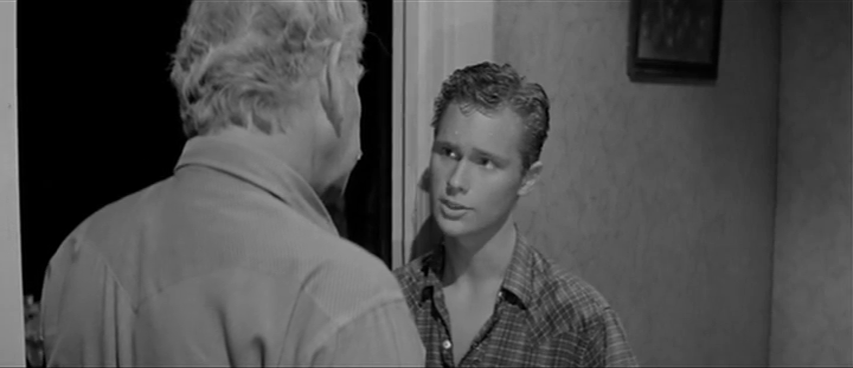
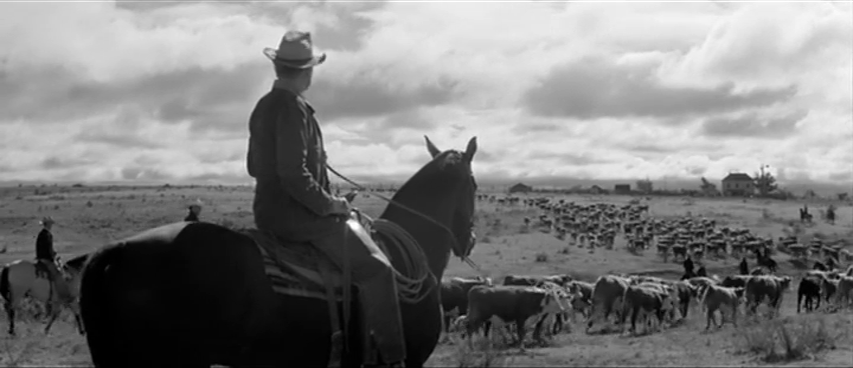
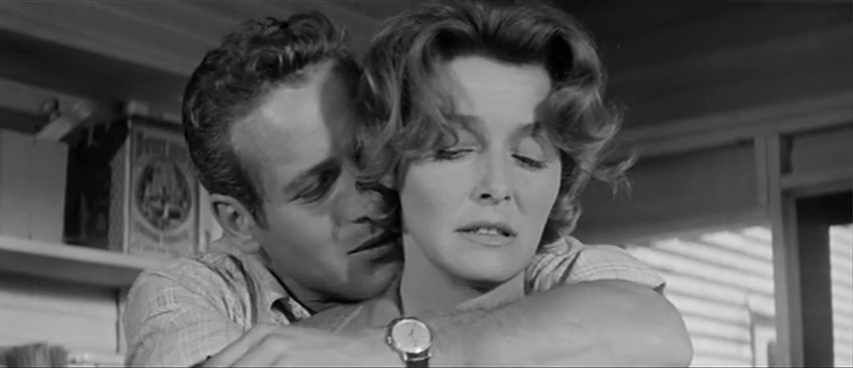
2 thoughts on “Hud (1963)”
A once-must for Douglas’ performance; it’s doubtful, overall, that film fanatics will find the film itself satisfying.
I’ve read a few of McMurtry’s books but not (yet) ‘Horseman, Pass By’. This rewatch of ‘Hud’, however, may lead to a read – because I’m curious-enough re: what-all changed when the screenwriters got hold of the book.
I did notice a few things. For example, though the dialogue for the most part leans toward an appropriate terseness, there are times when the characters give into a certain verbose quality that seems needless and affected. That’s a smaller point.
A larger one has to do with Neal’s character. Originally written as a black woman (which was changed for reasons having to do with racial issues at the time), Neal – in the screenplay – still often *talks like* a black woman. Simply making the character white doesn’t change that. As well, it would be interesting to know the age of the original character. I would never say that it’s far-fetched that a much-older woman could be the object of desire (i.e., Deborah Kerr’s bedroom scene with David Niven in ‘Casino Royale’ reveals her as being quite genuinely alluring) but – in the case of ‘Hud’ – not only do both Newman and De Wilde express strong interest in Neal (if it were just one of them, that would be more believable) but one wonders what’s drawing them when Neal shows *no* interest in sex whatsoever (outside of one comment she makes to Newman about liking seeing him with his shirt off). I would think it more likely that a younger woman would be exuding more sexual interest – even if that interest wasn’t directed towards De Wilde or Newman (they would still sense a general sexual vibration that they would find appealing or an enticement).
There’s not a whole lot that is unique in ‘Hud’. De Wilde’s role echoes the hero-worship one he had in ‘Shane’; the father-son conflict echoes ‘Cat on a Hot Tin Roof’.
Still, yes: the cattle disease issue is “eerie” if the film is seen in 2020… and. not only that, the self-serving character of Hud, to a degree, can be a stand-in for the current POTUS (even though the latter is nowhere near as handsome or ‘charming’). Many viewers who saw ‘Hud’ on release thought Newman’s character was something of a hero (even Newman thought that was a strange perception) – which is how many Americans. of course, view the ‘person’ who has been destroying our country for 4 years.
‘Hud’ is, indeed, a bleak film but what pulled me during this rewatch was Douglas. I felt strongly for him and wanted to understand more about his character. ~ which, again, may be why I’ll need to go to the book.
Note: The simple, acoustic guitar-based score by Elmer Bernstein is highly effective.
Interesting… I don’t find Neal’s role (or performance) hard to believe at all. She exudes an earthy sensuality, and I find her speech to be more “southern” than Black dialect.
If anything’s lacking, I think, it’s De Wilde’s interest in her — his admission seemed to come out of nowhere, though I took it as simply a manifestation of a young man living in the same house as a non-related female. However, he could have done more to show hints of this attraction throughout.